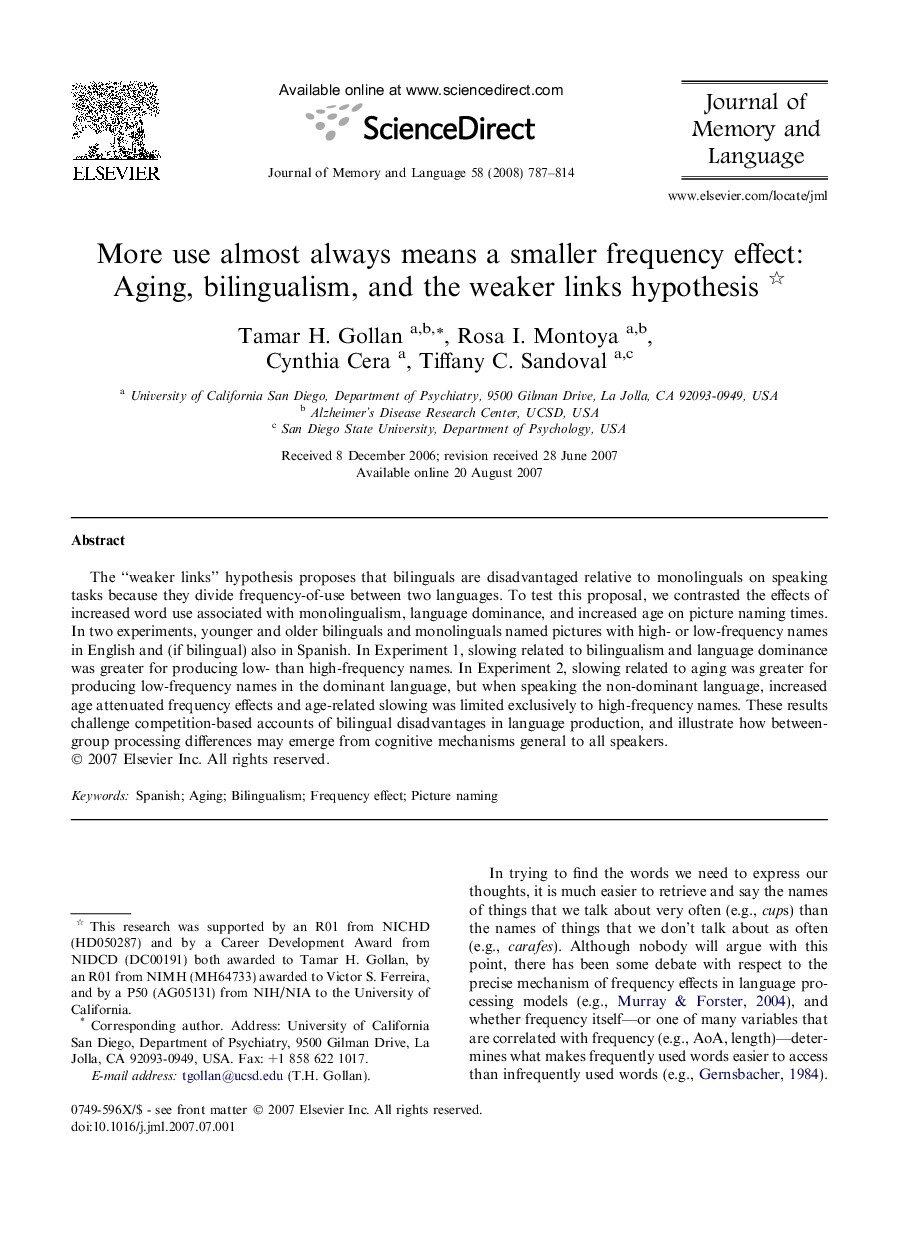| کد مقاله | کد نشریه | سال انتشار | مقاله انگلیسی | نسخه تمام متن |
|---|---|---|---|---|
| 932224 | 923084 | 2008 | 28 صفحه PDF | دانلود رایگان |

The “weaker links” hypothesis proposes that bilinguals are disadvantaged relative to monolinguals on speaking tasks because they divide frequency-of-use between two languages. To test this proposal, we contrasted the effects of increased word use associated with monolingualism, language dominance, and increased age on picture naming times. In two experiments, younger and older bilinguals and monolinguals named pictures with high- or low-frequency names in English and (if bilingual) also in Spanish. In Experiment 1, slowing related to bilingualism and language dominance was greater for producing low- than high-frequency names. In Experiment 2, slowing related to aging was greater for producing low-frequency names in the dominant language, but when speaking the non-dominant language, increased age attenuated frequency effects and age-related slowing was limited exclusively to high-frequency names. These results challenge competition-based accounts of bilingual disadvantages in language production, and illustrate how between-group processing differences may emerge from cognitive mechanisms general to all speakers.
Journal: Journal of Memory and Language - Volume 58, Issue 3, April 2008, Pages 787–814